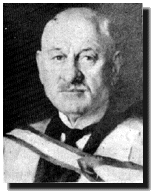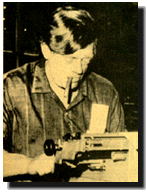
Prince Edward Island’s breathtaking landscapes
and rural community life have inspired numerous authors
to great achievement and recognition in poetry and prose.
The most famous of these writers is undoubtedly Lucy Maud
Montgomery. But Islanders are also proud of having shared
an Island home with the likes of Sir Andrew Macphail,
Milton Acorn, and many lesser-known but perhaps equally
talented authors. They are, among many others:
Boyde Beck, F. W. P. Bolger, Lesley Anne Bourne, E. E.
Cran, Michael Hennessey, Deirdre Kessler, Frank Ledwell,
Ed MacDonald, Hugh MacDonald, Joe Sherman, J. J.
Steinfeld, Robert C. Tuck, David Weale, and Wayne Wright.
The Island’s most popular writers today include
historians, folklorists and storytellers, academics,
editors, poets, playwrights, novelists, and journalists.
L. M. Montgomery was born in 1874 in Clifton (New
London), Prince Edward Island. Montgomery spent most of
her early life at her Cavendish home and, later, in the
communities of Bideford, Belmont, and Bedeque, where she
taught school. She was educated at Prince of Wales
College in Charlottetown and Dalhousie College in
Halifax. She also spent a year working at Halifax’s Daily
Echo. Young Maud was first published in 1890 when
her narrative poem “On Cape Leforce” was
printed in a Charlottetown newspaper. In 1904, she began
writing her most famous work. She received four
rejections before L. C. Page of Boston agreed to publish Anne
of Green Gables. Released in 1908, the novel went
through six editions and sold 19,000 copies in the first
five months. It was during this period that Montgomery
also wrote “The Island Hymn,” Prince Edward
Island’s provincial anthem that was originally sung
to the tune of “God Save the King.” Three years
later, Montgomery married Rev. Ewan Macdonald and moved
to Ontario, where she lived the rest of her days. Through
her years of marriage and motherhood, as she had done
since childhood, Montgomery continued to write—diary
entries, letters, poems, stories, and novels for children
and adults. Today, Montgomery has become a subject of
study and numerous books and articles have been published
about the author and her work. The L. M. Montgomery
Institute on the University of Prince Edward Island
campus encourages scholarly research that expands
understanding of this Island author and her legacy.
Works of L. M. Montgomery
To listen to “The Island Hymn” click on icon: ![]()
Sir Andrew Macphail was born in 1864 in Orwell, Prince
Edward Island. He was educated in Arts and Medicine at
McGill University in Montreal, Quebec, and became an
important English-Canadian intellectual figure during the
period prior to World War I. He was the first editor of
the Canadian  Medical Association Journal and
was a well-recognized lecturer, author, social critic,
and editor. In his writings and lectures, Macphail
denounced Canada’s transformation from rural
agrarian societies to urban industrialism. He deplored
the disintegration of the family and increasing
materialism, class inequality and tension, squalor and
unhealthiness of urban slums. His novel The
Master’s Wife reveals Macphail’s social
philosophy as well as a picture of life in a
nineteenth-century Island Scottish-Protestant settlement.
It is widely recognized that Macphail’s social
criticism stems from his upbringing in Prince Edward
Island.
Medical Association Journal and
was a well-recognized lecturer, author, social critic,
and editor. In his writings and lectures, Macphail
denounced Canada’s transformation from rural
agrarian societies to urban industrialism. He deplored
the disintegration of the family and increasing
materialism, class inequality and tension, squalor and
unhealthiness of urban slums. His novel The
Master’s Wife reveals Macphail’s social
philosophy as well as a picture of life in a
nineteenth-century Island Scottish-Protestant settlement.
It is widely recognized that Macphail’s social
criticism stems from his upbringing in Prince Edward
Island.
Milton Acorn, “The People’s Poet,” was
born in Charlottetown in 1923. He served briefly in World
War II, returning home after an injury and was to become
one of Canada’s greatest poets, credited with bringing poetry into the streets. At age
58, after spending most of his writing years in Montreal,
Vancouver, and Toronto, Acorn returned to Prince Edward
Island, home of his youth and inspiration for his art. He
stayed here for the remainder of his life. The passion in
his short poems and sonnets reveal Acorn’s love of
nature and humanity. His most successful books were I’ve
Tasted My Blood (1969, Ryerson), More Poems for
People (1972, NC Press), and The Island Means
Minago (1975, NC Press) which earned him the
Governor Generals Award. In 1970, he received the
Canadian Poet’s Award. And, in the year before his
death in 1986, Acorn was given a Life Membership to the
Canadian Poetry Association and was elected Life Member
of the League of Canadian Poets.
credited with bringing poetry into the streets. At age
58, after spending most of his writing years in Montreal,
Vancouver, and Toronto, Acorn returned to Prince Edward
Island, home of his youth and inspiration for his art. He
stayed here for the remainder of his life. The passion in
his short poems and sonnets reveal Acorn’s love of
nature and humanity. His most successful books were I’ve
Tasted My Blood (1969, Ryerson), More Poems for
People (1972, NC Press), and The Island Means
Minago (1975, NC Press) which earned him the
Governor Generals Award. In 1970, he received the
Canadian Poet’s Award. And, in the year before his
death in 1986, Acorn was given a Life Membership to the
Canadian Poetry Association and was elected Life Member
of the League of Canadian Poets.
Lest We
Forget | Islanders of
Valour | Women Who Served
Abroad
Musicians | Artists
| Entertainers | Athletes
